FedEx Corporation (NYSE:FDX) Insider Trading and Financial Health Overview

- FedEx's stock performance outpaces UPS during the holiday season, indicating potential investment opportunities.
- The company's financial metrics, including a P/E ratio of 17.34 and a debt-to-equity ratio of 0.28, showcase its market valuation and financial stability.
- Insider trading activity, with a director purchasing 333 shares, may signal confidence in FedEx's future performance.
FedEx Corporation (NYSE:FDX) is a global leader in transportation, e-commerce, and business services. The company is known for its reliable delivery services and competes with other major players like United Parcel Service (UPS). Recently, LANE AMY B, a director at FedEx, purchased 333 shares of the company's common stock at $276.06 each, as reported on Form 4.
During the holiday season, FedEx and UPS handle increased order volumes. In 2024, FedEx's stock rose by 1.05%, while UPS faced declines, with its stock near a four-year low. This performance difference raises questions about which company might be a better investment in 2025, especially for dividend-focused investors.
FedEx's financial metrics provide insight into its market valuation. The company's price-to-earnings (P/E) ratio is 17.34, indicating how the market values its earnings. A price-to-sales ratio of 0.77 suggests investors pay 77 cents for every dollar of sales, while an enterprise value to sales ratio of 0.97 reflects its total valuation relative to sales.
The enterprise value to operating cash flow ratio of 12.47 highlights the relationship between FedEx's enterprise value and its cash flow from operations. An earnings yield of 5.77% offers insight into the return on investment for shareholders. FedEx's debt-to-equity ratio of 0.28 shows a relatively low level of debt compared to equity, indicating financial stability.
Additionally, FedEx's current ratio of 1.23 suggests the company can cover its short-term liabilities with its short-term assets. This financial health, combined with recent insider trading activity, may influence investor decisions as they consider FedEx's potential as a dividend stock in the coming year.
| Symbol | Price | %chg |
|---|---|---|
| 086280.KS | 164200 | 0.3 |
| 180640.KS | 99600 | 1.2 |
| 18064K.KS | 31700 | 0.16 |
| IPCC.JK | 1050 | 0 |
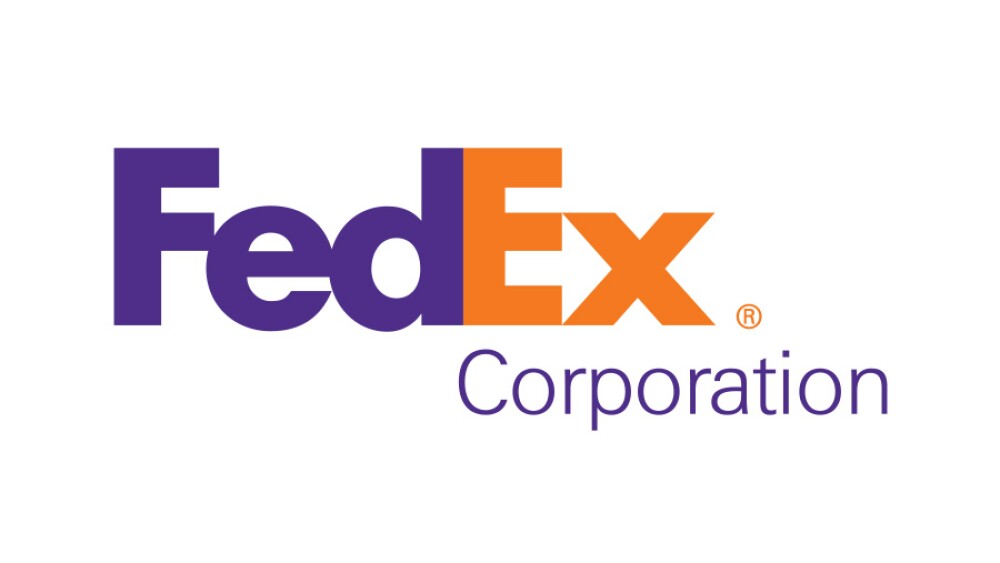
FedEx Corporation Surpasses Earnings and Revenue Estimates
- FedEx Corporation (NYSE:FDX) reported an earnings per share (EPS) of $3.83, surpassing the estimated $3.61 and marking a +4.93% earnings surprise.
- The company's revenue for the quarter was $22.2 billion, exceeding estimates and reflecting a nearly 3% increase year-over-year.
- FedEx reinstated its full-year outlook, anticipating revenue growth of 4% to 6%, and highlighted strategic initiatives aimed at cutting costs by $1 billion by fiscal 2026.
FedEx Corporation, listed on the NYSE under the symbol FDX, is a major player in the global transportation and logistics industry. The company provides a wide range of services, including express transportation, freight, and supply chain management. FedEx competes with other industry giants like UPS in the Zacks Transportation - Air Freight and Cargo industry.
On September 18, 2025, FedEx reported earnings per share (EPS) of $3.83, surpassing the estimated $3.61. This performance also exceeded the Zacks Consensus Estimate of $3.65, marking a +4.93% earnings surprise. This is an improvement from the $3.60 EPS reported in the same quarter last year, showcasing FedEx's consistent ability to outperform expectations.
FedEx's revenue for the quarter ending August 2025 was $22.2 billion, exceeding the estimated $21.65 billion. This figure also surpassed the Zacks Consensus Estimate by 2.15%, reflecting a nearly 3% increase from the $21.58 billion reported a year ago. FedEx has consistently exceeded consensus revenue estimates in three of the last four quarters.
Following the earnings report, FedEx shares surged over 5% in after-hours trading. The company reinstated its full-year outlook, anticipating revenue growth of 4% to 6% for the fiscal year. This move contrasts with UPS, which refrained from providing a full-year outlook in July. FedEx's forecast for adjusted EPS is between $17.20 and $19, aligning with market projections.
FedEx's strategic initiatives have been successful, as highlighted by CEO Raj Subramaniam. The company is on track to cut costs by $1 billion by fiscal 2026 and plans to spin off its freight business by next June. With a P/E ratio of approximately 13.17 and a price-to-sales ratio of about 0.61, FedEx's financial metrics indicate a strong market valuation and investor confidence.
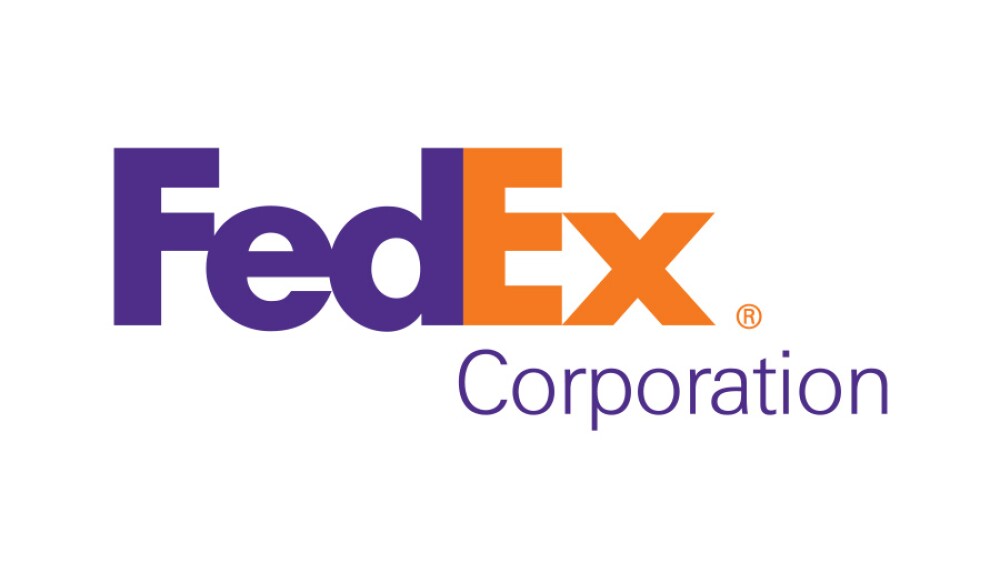
FedEx Corporation (NYSE: FDX) Analyst Price Target Update and Earnings Outlook
FedEx Corporation (NYSE:FDX) is a leading entity in the transportation and logistics industry, facing stiff competition and changing analyst expectations. Here are three key insights from the recent developments:
- Analysts have revised the average price target for FedEx to $247, down from the previous quarter's $281, indicating a more conservative outlook.
- Despite expectations of growth in revenue and earnings per share, FedEx's stock has a tendency to decline post-earnings announcements.
- FedEx is considered undervalued with a price-to-earnings ratio of 13x, suggesting potential for stock price appreciation.
FedEx Corporation, a major player in the transportation and logistics sector, offers a broad spectrum of services, including express shipping, freight, and supply chain management. It competes with other logistics giants such as UPS and DHL. The company has seen a shift in its consensus price target, reflecting changing analyst expectations.
Last month, analysts set an average price target of $247 for FedEx, indicating a conservative short-term outlook. This is a decrease from the previous quarter's target of $281, suggesting a decline in optimism. A year ago, the target was even higher at $308.26, showing a significant drop over the year. This trend may be influenced by FedEx's financial performance and broader economic challenges.
FedEx is set to release its first-quarter earnings, with expectations of growth in revenue and earnings per share. Despite this, the stock has shown a tendency to decline, even when surpassing analyst expectations. Analyst Ki Bin Kim from Truist Financial has set a notably lower price target of $166, highlighting a cautious stance on the stock's future performance. The transportation and logistics sector is sensitive to economic conditions, fuel prices, and global trade dynamics.
These factors can impact FedEx's stock performance and analysts' expectations. Additionally, FedEx's strategic initiatives, such as technology investments and cost-cutting measures, may influence analysts' views on the stock. Investors are closely watching FedEx's upcoming earnings report, as it could be a pivotal moment for the company. The report will provide insights into FedEx's financial performance and future outlook, helping investors make informed decisions. Despite challenges, FedEx is considered undervalued with a price-to-earnings ratio of 13x, suggesting potential upside in the stock price.
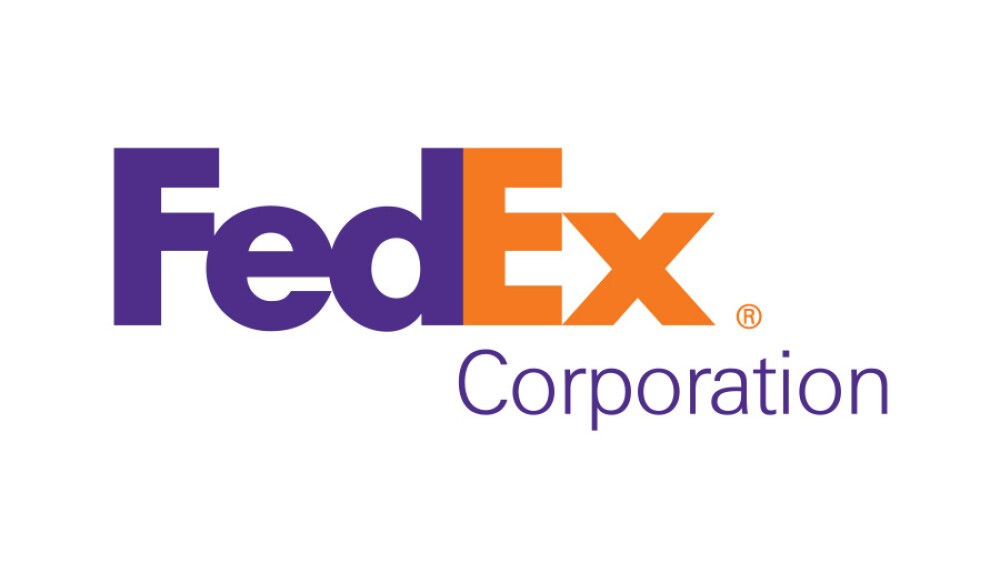
FedEx Corporation (NYSE: FDX) Quarterly Earnings Preview
- Analysts predict an EPS of $3.65 and revenue of approximately $21.67 billion for the upcoming quarter.
- Historical data shows FedEx's stock tends to decline post-earnings, with a median drop of 4%.
- Financial metrics reveal a P/E ratio of 13.24 and a debt-to-equity ratio of 1.33, indicating its market valuation and financial leverage.
FedEx Corporation (NYSE: FDX) is a global leader in logistics and delivery services, known for its extensive network and reliable service. The company is set to release its quarterly earnings on September 18, 2025. Analysts predict an earnings per share (EPS) of $3.65 and revenue of approximately $21.67 billion for this period.
Historically, FedEx's stock has shown a tendency to decline following earnings announcements. Over the past five years, the stock has dropped the day after earnings in 58% of cases, with a median decline of 4%. The largest one-day drop was 21.4%. This pattern suggests that traders might anticipate similar movements and adjust their strategies accordingly.
For the upcoming earnings, analysts expect FedEx to report an EPS of $3.64 and sales of $21.7 billion for Q1 2026. This is a slight increase from the previous earnings of $3.60 per share and sales of $21.6 billion. The projected EPS of $3.65 represents a 1.4% increase from the same period last year, while revenues are expected to rise by 0.9% year-over-year to $21.78 billion.
In the past 30 days, there has been a minor downward revision of 0.3% in the consensus EPS estimate. Such revisions are important as they often signal potential investor actions. Research shows a strong link between earnings estimate revisions and short-term stock price performance, making these adjustments crucial for investors.
FedEx's financial metrics provide further insight into its market position. The company has a price-to-earnings (P/E) ratio of 13.24 and a price-to-sales ratio of 0.61, indicating a relatively low market valuation compared to its revenue. The debt-to-equity ratio is 1.33, reflecting its financial leverage, while a current ratio of 1.19 suggests its ability to meet short-term liabilities.

FedEx Corp (NYSE:FDX) Strategic Initiatives and Financial Performance
- FedEx is implementing its DRIVE initiative, achieving $4 billion in structural savings, highlighting its commitment to cost reduction and operational efficiency.
- The company's transformation initiatives, including DRIVE and Network 2.0, are projected to generate $6 billion in savings by 2027, offsetting revenue pressures.
- Currently trading at a discount with a forward price-to-earnings ratio of 12.1 and a potential 20% upside, making it an appealing choice for value investors.
FedEx Corp (NYSE:FDX) is a major player in the global logistics industry, providing transportation, e-commerce, and business services. The company is known for its extensive air and ground network, which allows it to deliver packages quickly and efficiently worldwide. FedEx competes with other logistics giants like UPS and DHL, striving to maintain its position as a leader in the sector.
On August 28, 2025, Marjorie Taylor Greene made a purchase transaction involving FedEx shares, with the transaction amount ranging between $15,001 and $50,000. This move comes as FedEx is implementing its DRIVE initiative, which has already achieved $4 billion in structural savings. These savings highlight the company's commitment to cost reduction and operational efficiency.
FedEx's management is focusing on capital allocation and free cash flow, aiming to return capital to investors. This strategy is expected to drive share price appreciation, making the stock an attractive option for investors. The company's efforts to cut costs and improve efficiency are further supported by AI-driven initiatives and the growing e-commerce market.
Despite some near-term challenges, FedEx is strategically positioned for long-term growth. The company's transformation initiatives, including DRIVE and Network 2.0, are projected to generate $6 billion in savings by 2027. These savings are expected to offset revenue pressures from tariffs and the loss of a USPS contract, as highlighted by Seeking Alpha.
Currently, FedEx is trading at a discount compared to its peers, with a forward price-to-earnings ratio of 12.1. Analysts suggest a potential 20% upside, making FedEx an appealing choice for value investors. The stock's current price is $231.07, with a market capitalization of approximately $54.51 billion. Despite a slight decrease of 0.09%, the company's strategic initiatives and cost-cutting measures position it well for future growth.

FedEx Drops 5% as Soft Q1 Outlook and Trade Uncertainty Overshadow Strong Q4
FedEx (NYSE:FDX) shares fell more than 5% intra-day today after the logistics giant issued a weaker-than-expected profit forecast for the current quarter, fueling concerns about global demand and rising trade tensions.
Despite delivering a better-than-anticipated fourth-quarter performance—posting earnings per share of $6.07 on $22.2 billion in revenue, topping analyst estimates—investors focused on the company’s cautious guidance. FedEx projects adjusted Q1 EPS between $3.40 and $4.00, missing Wall Street’s expectation of $4.06.
The company also withheld full-year earnings and revenue guidance, citing a highly uncertain macro environment. CEO Raj Subramaniam described global demand as “volatile” during the earnings call, while executives pointed to rising trade frictions as another headwind. In particular, the decision to end duty-free status for low-cost shipments from China-linked retailers like Shein and Temu has weighed on profitability.
The results from FedEx, often viewed as a bellwether for economic activity, follow growing business caution amid political and trade uncertainty tied to former President Trump’s renewed tough stance on China. Combined with structural cost cuts of $2.2 billion over the past year, FedEx is trying to offset weaker volumes, but near-term visibility remains limited.
Investors appear to be bracing for a rocky start to the new fiscal year, as external pressures continue to cloud the outlook.
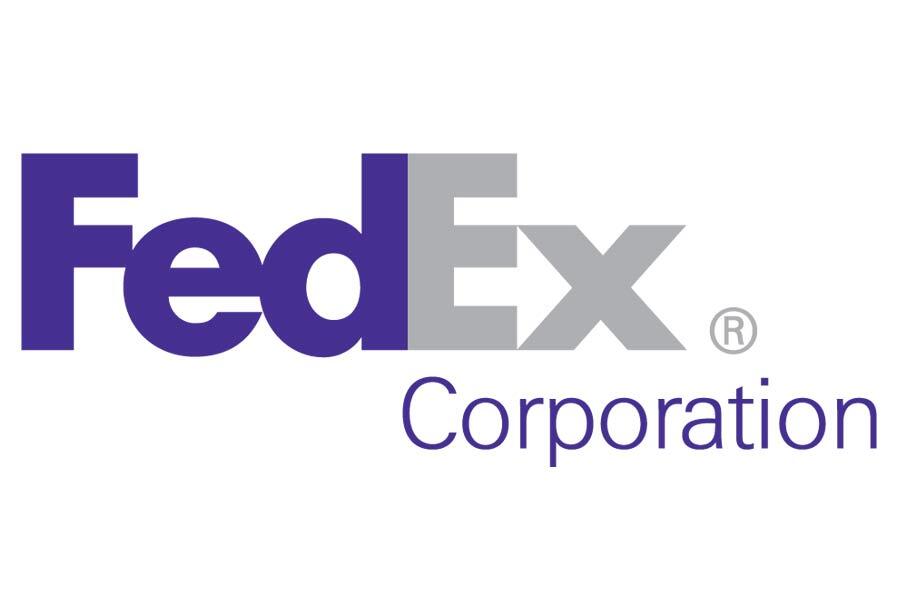
FedEx Corporation (NYSE: FDX) Surpasses Earnings Expectations
- FedEx reported earnings per share (EPS) of $6.07, beating the estimated $5.93, and revenue of $22.2 billion, exceeding the forecast of $21.8 billion.
- The company achieved its $4 billion cost-cutting target and plans to further reduce costs by $1 billion in the next fiscal year.
- Despite positive financial results, FedEx's stock fell by about 5% in after-hours trading due to profit guidance for the current quarter slightly below Wall Street's expectations.
FedEx Corporation (NYSE: FDX) is a global leader in transportation, e-commerce, and business services. Known for its overnight shipping service, FedEx operates in over 220 countries and territories. The company competes with major players like UPS and DHL in the logistics industry. On June 24, 2025, FedEx reported impressive financial results, with earnings per share (EPS) of $6.07, surpassing the estimated $5.93. The company also reported revenue of $22.2 billion, exceeding the estimated $21.8 billion.
FedEx's recent financial performance highlights its successful cost-cutting measures. The company achieved its $4 billion cost-cutting target and plans to further reduce costs by $1 billion in the next fiscal year. CEO Raj Subramaniam expressed confidence in the company's transformation initiatives, which focus on integrating networks and reducing costs to create long-term value. Despite these positive results, FedEx's stock fell by about 5% in after-hours trading due to profit guidance for the current quarter that was slightly below Wall Street's expectations.
The company's financial metrics provide insight into its market valuation and financial health. FedEx has a price-to-earnings (P/E) ratio of approximately 14.06, indicating the market's valuation of its earnings. The price-to-sales ratio stands at about 0.63, suggesting that investors are paying 63 cents for every dollar of sales. The enterprise value to sales ratio is around 1.05, reflecting the company's total valuation relative to its sales.
FedEx's operating income increased to $1.79 billion, with an adjusted figure of $2.02 billion, compared to $1.56 billion and $1.87 billion, respectively, in the prior year. The operating margin improved to 8.1%, with an adjusted margin of 9.1%, up from 7.0% and 8.5% in the previous fiscal year. These improvements demonstrate the company's ability to enhance profitability through effective cost management.
Despite the positive financial results, FedEx shares have declined by over 18% year-to-date. The company's debt-to-equity ratio is approximately 1.39, indicating its leverage level. Additionally, FedEx has a current ratio of about 1.24, suggesting its ability to cover short-term liabilities with short-term assets. These metrics provide a comprehensive view of FedEx's financial position and its potential for future growth.
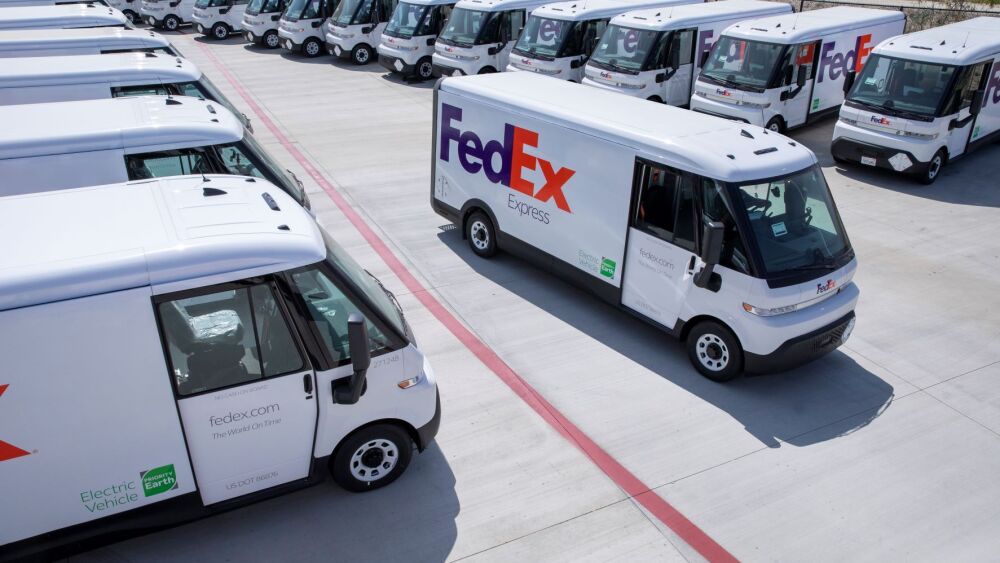
FedEx (NYSE:FDX) Upgraded to "Buy" by Bank of America Securities
- Bank of America Securities upgraded FedEx (NYSE:FDX) to a "Buy" rating, with a current stock price of $229.23.
- FedEx is expected to report fourth-quarter revenue of $21.84 billion, with an EPS prediction of $5.87.
- The stock has shown volatility over the past year, with a high of $313.84 and a low of $194.30.
On June 23, 2025, Bank of America Securities upgraded FedEx (NYSE:FDX) to a "Buy" rating, with the stock priced at $229.23. FedEx is a major player in the logistics and transportation industry, providing services worldwide. The company's competitors include UPS and DHL, making the logistics sector highly competitive.
FedEx is set to release its fourth-quarter financial results soon, which will be crucial for understanding the company's performance. Analysts expect FedEx to report a fourth-quarter revenue of $21.84 billion, slightly down from $22.1 billion in the same quarter last year. Despite this anticipated decline, FedEx has exceeded revenue estimates in the last two quarters, showing resilience in a challenging market.
For earnings per share (EPS), analysts predict $5.87, up from $5.41 in the previous year's fourth quarter. Although FedEx has missed EPS estimates in the last three quarters, it has surpassed them in six of the past ten quarters. This mixed performance makes the upcoming earnings report significant for investors and market strategists.
Currently, FedEx's stock is priced at $229.23, reflecting a positive change of $3.19, or a 1.41% increase. The stock has fluctuated between $223.75 and $229.29 during the day. Over the past year, FedEx has experienced a high of $313.84 and a low of $194.30, indicating volatility in its stock price.
FedEx's market capitalization is approximately $54.92 billion, with a trading volume of 1,621,647 shares. This data highlights the company's significant presence in the market and the interest it generates among investors. The upcoming financial results will be closely watched for any signs of a sustained rebound in FedEx's performance.







